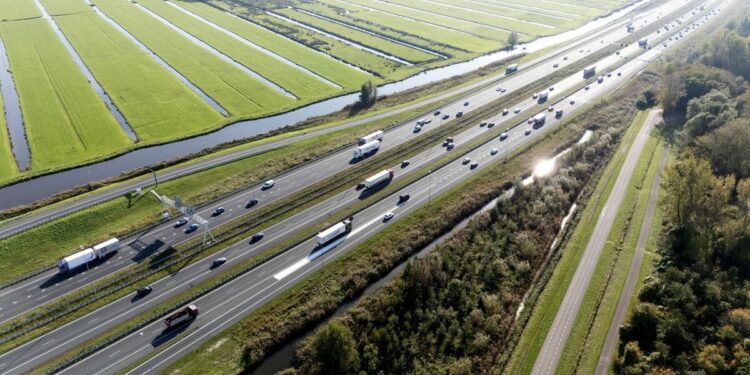The project, by Belgian firm Large Infrastructure Projects, aims to link Bulgaria, Romania, Greece, Hungary, Slovakia, and Turkey through an interconnected road network.
Currently, direct routes between northeastern and southeastern Europe are sparse, forcing travellers and goods to pass through Central Europe, creating inefficiencies.
Upon completion, drivers will be able to travel seamlessly from northern Europe to the Aegean Sea, reducing reliance on cumbersome routes and slashing travel times.
The new motorway will cut journey lengths by 3,100 miles, saving up to three weeks on existing routes like the Suez-Baltica corridor.
The project is more than just a road. It incorporates high-speed rail, 5G networks, fibre optics, and cargo ports in Greece and Poland.
These additions aim to facilitate the movement of goods, enhance tourism, and develop remote regions.
The strategic importance of the initiative also ties into broader geopolitical goals.
The motorway is seen as a response to growing Sino-Russian economic and infrastructure projects, strengthening ties within NATO and the EU, and bolstering Europe’s regional influence.
ADN Bulgaria said: “The project will improve cross-border trade, enhance local economies, and attract tourists to less-visited areas, unlocking untapped opportunities across participating nations.”
This mega-project offers a hopeful narrative amid Europe’s challenges, fostering stronger ties among nations while paving the way for future collaboration.
In the future, the project hopes to expand to Scandinavia and Cyprus.
Source link : http://www.bing.com/news/apiclick.aspx?ref=FexRss&aid=&tid=6742cb7f564448af8ba9eb9976a158d3&url=https%3A%2F%2Fwww.express.co.uk%2Fnews%2Fworld%2F1978906%2Feurope-new-motorway-abc-de-bulgaria-romania-greece-hungary-slovakia-turkey&c=5038157603649658543&mkt=de-de
Author :
Publish date : 2024-11-23 21:01:00
Copyright for syndicated content belongs to the linked Source.


